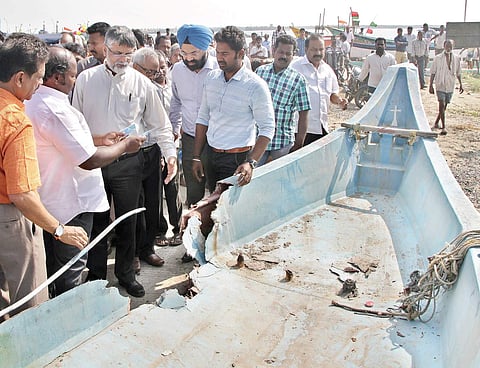Dalits discriminated in Vardah relief, says study
CHENNAI: Relief measures extended to those affected in the cyclone Vardah, which hit the city on December 12, had not reached the Dalits, but only the dominant castes, in the villages of Kancheepuram and Tiruvallur districts, according to a study by an NGO working on Human rights.
The study by Social Awareness for Youth (SASY) found that in 80 percent of the villages surveyed, the relief shelters were occupied only by caste Hindu communities and Dalit families could not make use of the shelters. The NGO released the report titled “Broken Promises, Faded Hopes” to the media here on Thursday.
“Dalits and Adivasi communities are mostly living close to the sea or the backwaters or rivers. Their geographical location makes them more vulnerable to any disaster,” the report said.
The report also observed that 70 percent of the affected families have not got any immediate shelter. They also did not receive food, medical aid and other facilities. Now many were living in the open without utensils, blankets and clothes. Most of the families have lost their government ID proofs, children their books and other items during the cyclone and heavy rains.
Worst of all, the report said the Dalits were not even warned of the cyclone’s landfall.
As part of the study, 37 villages in Tiruvallur district and 21 in Kancheepuram district were surveyed. Of the 2,400 families in Tiruvallur district, 670 were affected. In Kancheepuram, of the 3,382 families, 2,837 were affected.
“With most public sources of drinking water having been rendered unusable by the cyclone, the villagers have to walk an average of 3 km to collect water. More than 60 percent of the villagers have complained that the dominance castes refused them to take water from sources either owned by them or in their locations,” the report said.
In most of the villages, the government authorities have not visited the Dalit, Adivasi settlements and instead asked them to meet the officials in the government offices. But, due to lack of transport facilities, the people were unable to travel to the government offices.

